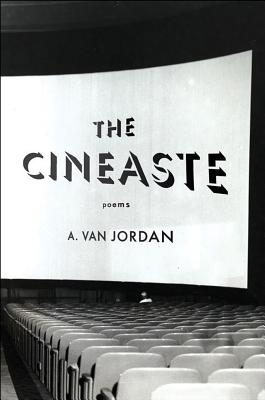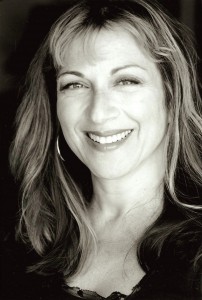 “I’ll tell you the secret to all of it,” Cristina García said during the first session of her one-month stay at UNC-Wilmington’s MFA program last winter. For the dozen or so eager MFA students enrolled in her class, it—six novels, three YA books, one non-fiction book, a poetry collection, even a theater performance—seemed like the holy grail of literary accomplishment. In retrospect, García was likely referring more to her writing life than to her immense success: that of composing sentence after sentence, day after day, novel after novel, with no major hiccups in her routine.
“I’ll tell you the secret to all of it,” Cristina García said during the first session of her one-month stay at UNC-Wilmington’s MFA program last winter. For the dozen or so eager MFA students enrolled in her class, it—six novels, three YA books, one non-fiction book, a poetry collection, even a theater performance—seemed like the holy grail of literary accomplishment. In retrospect, García was likely referring more to her writing life than to her immense success: that of composing sentence after sentence, day after day, novel after novel, with no major hiccups in her routine.
“Poetry,” García continued. “That’s the big secret.”
Every morning before García begins her work for the day, she reads two or more hours of poetry. She pins her favorite poems to a corkboard on her wall, returning to them again and again for inspiration. An intricate turn of phrase can set her narrative mind spinning, and she knows it when she sees it. Anyone who has read Dreaming in Cuban can attest that its author has an ear for verse—evident, for example, in Celia’s heartbreaking letters to her lost lover Gustavo:
I think of our afternoons in those measured shafts of light, that spent light, and I wish I could live underwater. Maybe then my skin would absorb the sea’s consoling silence.
Now, in her newest novel, King of Cuba (Scribner, May 2013), García has tuned her poetic ear to a narrative that is equal parts ambitious, vibrant, and hilarious. None other than Garcia could have tackled El Comandante and the Cuban exile community with such unflinching verve.
In addition to this new book, García is the author of five previous novels: The Lady Matador’s Hotel, (Scribner, 2010); A Handbook to Luck (Knopf, 2007); Monkey Hunting (Knopf, 2003); The Agüero Sisters (Knopf, 1997), winner of the Janet Heidiger Kafka Prize; and Dreaming in Cuban (Knopf, 1992), finalist for the National Book Award. She has also edited two anthologies, written three works for young readers, and published a collection of poetry, The Lesser Tragedy of Death (Akashic Books, 2010).
I sat down with García in her office one unseasonably warm day in February to see if she might share more of her secrets with emerging writers.
Interview:
Garrard Conley: What first drew you to writing and experimenting with so many different forms?
Christina García: Poetry has always been the ignition for everything. It’s what ignites my brain, lights the imaginative forces. If poetry didn’t exist, I’d be doing something else entirely. That’s how crucial it is to me. For pleasure, for work, to get started in the day—I read poetry. And it’s the last thing I read at night. It fuels my dreams.
I get that. To feel at peace with being alive.
Absolutely. I find that, too. There’s a kind of deep calming which doesn’t necessarily mean that you are calm—you know, because you’re dealing with lots of complex and heavy issues—but you feel like, yes, language is the way: this is what it means to be human. It’s through narrative that we begin to understand what it is we’re experiencing.
You have a knack for inhabiting multiple cultural perspectives, a fact apparent to anyone who reads your richly textured prose. One perspective among many seems to be an academic one, though this takes a definite backseat to lyricism in your fiction. You have a Master’s in European and Latin American Studies from Johns Hopkins, right? Has this scholarship influenced your fiction?
I’m always interested in what’s happening in the news, especially since there’s never any shortage of misguided US policy in Latin America. I’m also interested in the literature that emerges from a lot of political upheaval. I enjoy participating in that, and I think my background in political science and journalism was enormously helpful in contextualizing what it is I do.
None of my characters operate in a vacuum. You rarely see these tidy domestic dramas, mostly because of my own interest in a broader stage. I’m always interested in seeing how political events are shaking down within the individual and within the relationships between individuals, and also the kind of destruction this can cause in people’s lives and relationships. So, yes, my background is absolutely central.
I even occasionally teach a course called Politics & Literature, focusing on multi-genre 20th century [work]—anything from fiction, nonfiction, poetry, film, graphic novels, theater. Anything that emerges from political crisis. Not only is this literature instructive about the times, but it is also incredibly gorgeous. I learn so much more about a place through its poets and writers than I do by its journalists.
Another strand in your work seems to be that of reported speech, giving underrepresented or marginalized voices a chance for expression. This is perhaps most apparent in Lady Matador’s Hotel, where you interweave various cultures and perspectives, but I’m also thinking specifically about your latest novel, King of Cuba, where you’ve inhabited El Comandante himself. Did your work as a journalist for TIME have anything to do with that?
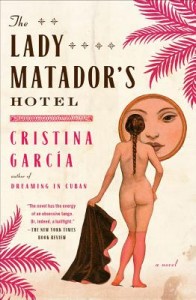
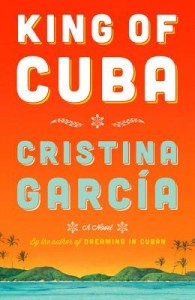
Though I sometimes diss journalism here and there, I actually have found it extremely helpful in gathering and processing large amounts of material quickly and distilling it down to what’s essential. Whether I’m researching colonial Cuba or 19th century China or contemporary Cuban history, my background has given me the confidence to feel like I can wrestle with a lot of these complicated issues, co-op them into my fiction, and transform them into something else. And for King of Cuba, specifically, I just became an expert on Castro—quickly. I mean, I’d been following him for years, of course, but I just did a total Fidel Castro immersion.
That sounds unpleasant.
It had its moments. But I approached it just the way you would learn another language, by throwing myself into it. You know, it’s difficult and you’re swimming and your head is barely above water, but at some point you begin to feel confident. And that’s kind of what happened with Castro. And so I read everything I could get my hands on, I saw lots of film footage, and by the end I really felt like I was inhabiting him in a disturbing sort of way.
Yes, I honestly had to look up several facts from your novel just to see if they were real. Like hijodeputa.com, a site dedicated to mapping Castro’s vital signs. It’s not a real site, of course, but you made it feel so very real in the narrative.
Once you’ve immersed yourself totally, the fun begins. You get to shelve everything, and then you depart into the fantasy and into some of the more ludicrous and outlandish possibilities. And that’s where I got to have so much fun. On both sides: both the El Comandante character and my crazy Cuban exile character.
And then the other narrative voices started to emerge, many of which were a product of observations I made on a trip to Cuba in 2011. I saw this one guy, for example, who was panhandling in the streets of Trinidad, and I imagined he was a vet from Angola. But in other places I actually spoke to the people. The woman in my narrative who is stealing money from the cigar factory tour, you know, I did see what she was doing. I did see that she was ripping people off. But later, in a conversation, I was talking to someone who said, “Well, who’s stealing from whom here? You know, we’re all completely exploited.” So I conflated these two events in the voice of one woman. So the reportorial is still very much a part of what I do. I pay close attention to what people are saying and trust my instincts for the rest.
Do you take notes?
I don’t take notes. At this point I trust that what I remember, for whatever bizarre reason, is what I need. Maybe I’m completely delusional, but rationalizing is a very convenient operation.
I think Flannery O’Connor, in one of her letters, compared her brain to a blender.
Yeah, you can’t really plan it, all narrative theory aside. You have to generate the work before you can apply narrative theory, if that’s what you choose to do. The raw material. The blender pulp.
With your fictionalized version of El Comandante in King of Cuba, you actually added some very touching moments. For example, El Comandante’s relationship with his wife. The reader can really see that he still loves her. What opened up Fidel’s compassionate side for you?
I think the flip side of every narcissist is an insecure person. Castro was once a little boy who was asking his mother, you know, “Will all of me grow?” And I think his fictional wife assures him in that way. I think there’s a scene where she says he’s the handsomest man, even handsomer than Che Guevara. And so she plays a kind of maternal role. I mean maybe not initially, but as they’ve grown older and had children—after the first frenetic phase of love—she serves as a quiet and unquestioning booster to who he is and to his ego and so on.
I also think that from his male macho point of view, he learned to compartmentalize. So these men might do their business or have affairs or whatever. But to do it within the understandings of the contract, well, you don’t do it with friends. Instead, you go outside your circle or go to prostitutes, and you always respect your wife and her role as the mother of your children. You keep those things separated. And all of this often begins once the lover becomes the mother.
One of my favorite details in the novel is the section with Bay of Pigs! the musical, which had me laughing for quite a while. The concept alone was genius, and to actually see it staged in a scene…
I had a lot of fun with that. My editor actually made me cut that back some. It was four times as long.
I wanted more!
[Laughter]
Do you think anyone in the Cuban-American community will get angry over something like Bay of Pigs! the musical? Does anticipating audience reaction have any affect on your writing process?
I hope they get angry. No, I mean, I think there’s equal opportunity skewering in my novel. I don’t feel like I have an agenda other than just letting it unfold and letting it rip on both sides of the streets of Florida, to the extent that anyone is reading these days and reacting. You know, it could, like so many books, just go into the void, and one has no control over that. But to the extent that people do read and react—if they don’t take themselves all that seriously—I hope they enjoy it. If they do take themselves too seriously, well, fuck ‘em anyway. When I was writing Dreaming in Cuban, I used to have these fantasies of being excoriated on those crazy radio shows, but none of that happened. So it’s sort of beyond me now to anticipate reaction. I never know what’s going to happen, if anything. So yeah, for the self-serious types there’s much upsetting news from the world of King of Cuba.
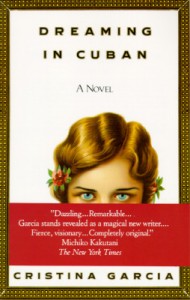
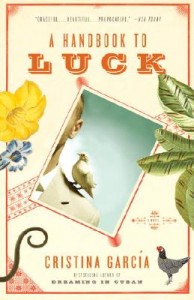
Speaking of musicals, in a 2009 interview with the San Francisco Examiner, you said you were working on an opera libretto with Richard Danielpour. Did that happen, and do you have any further plans to pursue music?
No, it didn’t. For about two years, his agent and mine tried to sell it. This was shortly after the financial meltdown, and a lot of the institutions were not doing new, experimental work at the time. We had a really lovely opera based on Jose Marti’s famous poem that every little school kid in Cuba can recite—it’s called “The Pink Shoes”—but they couldn’t sell it, so I don’t know if there’ll be more opportunities in the future. But it was really great to work with a musician of his caliber.
I’m working on a Spotify playlist just to keep up with the various musical references in your work. Benny Moré pops up a several times, as well as various classical pieces. How does music influence your process?
For me, music is important. I don’t listen to it while I’m writing. Not only do I require complete silence, but I wear earplugs when I work. This helps me to submerge myself in the fictional world. I don’t consciously or self-consciously insert music into the narrative. It happens organically. If in the moment, for example, Goyo and his bank-teller mistress are in the car, you know, I add a scorching bolero. And then it’s fun to play with the lyrics. Which bolero, exactly? I know it has to be a bolero, but which bolero? And then that’s where it’s fun trying to match what’s happening in the scene to the music, having it become a bit of an echo chamber. It becomes something bigger—it becomes this expansive moment. I think music is wonderful for that: expanding and illuminating the moment.
What project is next for you? Considering that you’ve written children’s books, poetry, a collection of short stories, and several novels, might you be interested in exploring yet another genre? Something cross-genre? Another bolero? Maybe incorporate some interactive music?
I would love to do some other things. I don’t know what, though. It seems like the language of the 21st century is a visual language. I may have missed that boat myself, though I do have younger writer friends who have started writing screenplays, mostly because they see that publishing and traditional print is undergoing a huge change. Books as we know them will probably become a niche, a luxury item, which seems so bizarre. And yet we hear that people are publishing more than ever. A lot of people are self-publishing now. Who knows? It’s still a very convulsive revolution.
You seem pretty calm about it.
What can I do? I mean, I could be like Don Quixote with my nag and my sidekick, but it’s not going to change anything. I hope to always be writing in one way or another, but if someone said to me, “Ok, tomorrow you have to stop writing; there will be no venue for novels whatsoever”—let’s just say that this decree was issued—I think I’d still find something else to do. I really would.
I’ve already been talking to a friend about opening up an art gallery. Cuba’s going to fall soon, and there are all of these great artists, and there’s no place for their work to go. I also just got my Zumba certification as an instructor. What if I open a Zumba studio? I just think life is long, and I feel like I’ve already had a couple of lives. There’s no reason why I can’t have more. And there’s always teaching; I love teaching.
Further Links and Resources:
- Read Lucas Hunt’s “A Story Sung: Why Fiction Writers Should Read Poetry.”
- Check out Conley’s Spotify Playlist for King of Cuba.
- For more information on Cristina García’s work, along with links to publicity and appearances, please visit the author’s website.


